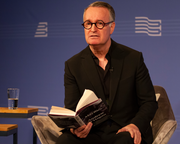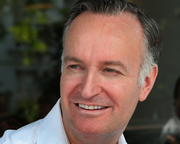More articles Wednesday 16 August 2017 12:35pm
Scotland, Your Scotland: Andrew O'Hagan Delivers Keynote Lecture at Book Festival
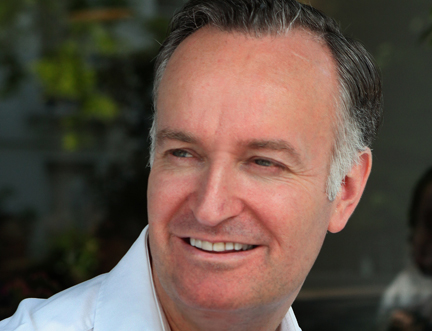
Britain “has mismanaged itself out of existence”, says the writer Andrew O’Hagan, and Scotland is now “free to succeed or to fail in its own terms”. In a keynote lecture at the Book Festival this morning, “Scotland, Your Scotland”, the acclaimed novelist said the events of the last few years had changed his mind about Scottish independence.
Recalling last year’s Supreme Court ruling on Brexit, O’Hagan said it was a “shattering moment” for those, like him, “who had always supported the idea of the United Kingdom”. The Prime Minister, he added, had ridden “rough-shod over Scotland’s discrete authority” by compelling it to accept Brexit when a majority of Scots had voted to Remain in the European Union.
“In a major respect, the Yes campaign had been right,” he added, “it wasn’t really about nationalism, it was about fairness and self-definition, about sovereignty in a much finer sense and now it was also about the march of history. It took the full unfolding of the case to see with total clarity that the Union was corrupted. It was the end of another old song, and it was hard now to resist the fact that Britain was being smashed by those who claimed to defend it, and that Scotland would probably be a better country for all that.”
O’Hagan revealed that he had purposefully refrained from commenting during the independence referendum, instead doing what he had been “taught to do in a Scottish primary school 40 years ago — Watch, Listen, and Learn”. “Quietly, I went to the rallies. I attended the conventions. I heard all the speeches and stood in the shadow of the flags that fanned the people cold,” he recalled. “The thing was to avoid the microphone. Keep it shut. Let reality do its thing.”
After the referendum on 18 September 2014, O’Hagan felt the Unionist parties had “won the referendum but lost the future”, with the then Prime Minister David Cameron committing the “most stupid and divisive political act in these lands” since the Poll Tax by playing the “English Card” the following morning.
“As I drove away from the count in Glasgow in the middle of the night, I felt the Union wasn’t saved,” said O’Hagan, “it was in fact over.” Brexit, he added, had only deepened “the chasm”, with “a belated Little England posing an existential threat to a Scotland that has seen itself for years as European”.
O’Hagan, who said he spoke “for no political movement”, also believed both Alex Salmond and David Cameron had been “too emotional” in their arguments for independence and the Union. “If Mr Salmond had thought more about the currency question and less about how to unfurl a saltire flag over the Centre Court at Wimbledon,” he said, “we might be standing now in the independent republic of Scotland, but equally, if David Cameron had thought less about what was won and lost on the playing fields at Eton, and denied himself a round of silly buggers over Europe, the death-knell of the Union might have been delayed.”
And looking to the future, O’Hagan predicted that Scotland would become one of the world’s “strongest digital republics”, a “digital renaissance” where “new thinkers, as yet unborn, will address what it means to be a Scottish person with Scottish instincts in a world of code and algorithms and digital money.”
Scotland, he acknowledged, had “problems galore”, but O’Hagan said he liked to think they were “honest ones, with no passion spent on hating others in the attempt to raise ourselves."
“There are challenges galore, there are buses to run on time and hospitals to equip and schools to turn into beautiful cathedrals of the new aspiration — but that is the task, and…our perplexity is our situation, and our moment.
“It is for Scotland, your Scotland, to write the Magna Carta of the Internet, to author its Bill of Rights, to play its part in securing decency and opposing chaos, in advancing liberty, and finessing our passage from a world of closed borders.”
Look, Listen & Read
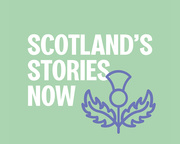
Announcing Scotland’s Stories Now: A Celebration of Scotland’s Year of Stories
Wed 16 February 2022
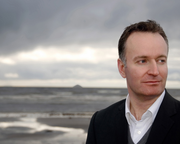
Andrew O’Hagan accuses European powers of contravening human decency
Sat 29 August 2015
- 2024 Festival:
- 10-25 August
- Full Programme launch:
- 4 June 2024
Latest News
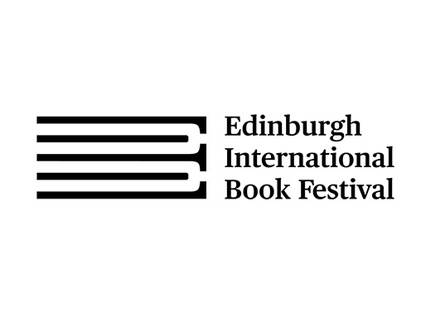 Our response to today's statement from Fossil Free Books
Our response to today's statement from Fossil Free Books

